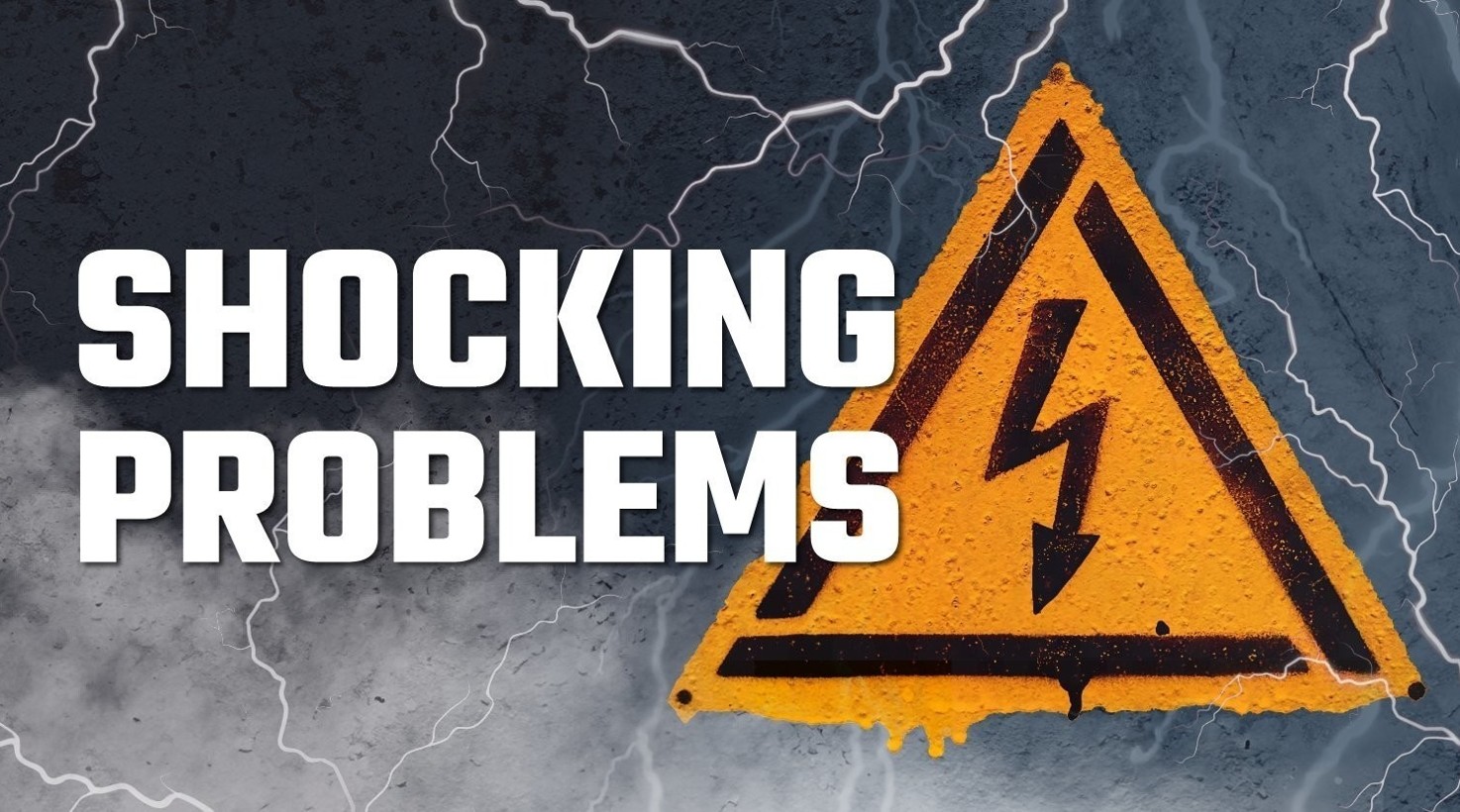We know boilers are all about steam. But did you know that early boilers even used steam to run their combustion air fans and feedwater pumps? Unlike the boilers of the past, though, today’s modern boilers depend on electricity to keep them running and safe. While that makes boilers simpler in some ways, it does add a whole additional aspect to boiler operation. That’s why it’s good to know about common electrical problems that boiler operators can come across in their day-to-day operation.
THAT BLOWS
Like all modern electrical systems, the electrical components in a boiler are protected by fuses. The fuses prevent any excessive amounts of electricity from a power surge or a short from damaging components that monitor for safety or provide important things like fuel, water, and air. If your boiler is there, but the lights aren’t on… start by checking the fuses. If you have a blown fuse or a tripped breaker, that might suggest an electrical issue somewhere in the line.
It may be a one-time issue, in which case resetting the breaker or replacing the fuse will fix the issue. However, if the same fuse keeps blowing or the same breaker keeps tripping, that indicates a problem that needs to be checked by a boiler professional. Fortunately, the breaker or fuse will give you some indicator of where to start troubleshooting.
SHORTED
Sometimes, electrical issues with a boiler may be caused by outside circumstances, and one of the main ones that boiler operators might encounter is a short caused by a water leak. Water and electricity don’t play nice, and when one comes in contact with the other, it can cause a breaker to trip or a fuse to blow. Sight glass leaks are frequently the culprit, but there is no shortage of piping and water sources in your boiler room. If that leak happens to be near any sort of electrical component or motor, it can cause electrical failure.
IGNITION TRANSFORMER
In the old days, any source of fire could be used to light a boiler. You’ve heard stories of people throwing burning paper, brooms, or lit matches into a furnace to light it off. That’s not only archaic, it’s also incredibly dangerous. To keep the fire side safe, today’s modern boilers use ignition transformers to create the spark that starts the burner.
These ignition transformers take incoming voltage and step it up to a higher level, then pass that high voltage juice across a gap to create a spark. That spark, in turn, is what ignites the pilot fuel. It’s not unlike the spark plugs in your car engine. Over time, though, transformers can weaken and lose the juice to make that jump. High voltage insulation can break down, and the spark might find a shorter, less useful path to ground… Long story short - no spark where we need it. So, if your boiler is failing to light, it could be an electrical issue with the transformer itself, or the wires supplying it.
SOLENOIDS
Modern boiler systems use solenoids in multiple areas, such as allowing the flow of oil or gas through normally closed safety-shutoff valves, or normally open gas vent valves. In a solenoid, a coiled-wire actuator creates an electromagnetic field that can pull specialized valves open or closed. If anything goes wrong with that coil, you may have an open circuit and get no valve actuation, and no fuel flow. The vent valves on your gas train generally close on power – that way you don’t vent gas to the roof when firing. If any of these fail, and you are lucky, you may get away with just changing the coil. Other times the whole valve may need replacing. It’s best to have a professional diagnose your solenoid issues and fix them accordingly.
CONTACTORS
Three-phase draft fans and feed water pumps receive their power through electrical contactors. These are basically large relays that allow lower voltage systems to call for high voltage motor operation. If a contactor coil is bad, or one of these contacts is corroded, or broken, the fan will either not come on, chatter, or maybe even blow a high voltage fuse. If your boiler trips on a combustion air switch, or you can’t seem to get water into the boiler because a pump won’t run, have a professional check out your motor starters.
DEAD MOTORS
A modern boiler control system has a lot going on. It is making constant adjustments to the flow of fuel, air, and water, to keep the boiler running optimally. It does this through a series of actuator motors that physically turn the valves to increase or decrease the amount of fuel, air, or water flowing into the boiler. But actuator motors can go bad, or the wires that supply them can become loose. If your boiler control system won’t start, or doesn’t maintain water level correctly, you may be looking at a bad actuator motor somewhere in the system.
Whatever it takes to keep your boiler running at maximum efficiency, WARE is here to help. If you’re having problems, whether it’s an electrical issue or something else, our highly trained technicians are standing by to get you back up and running. We also stock a wide range of electrical components in our online Boiler Warehouse site. However we can help, just let us know.
